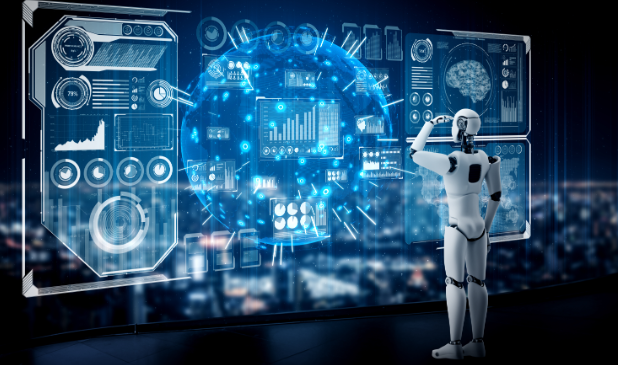

The rise of AI and IoT has brought changes to the telecommunications and Internet technology industries, laying the foundation for a more connected, efficient and intelligent future. The integration of AIoT will redefine the rules and is expected to completely change our communication, work and lifestyle
Rewrite this sentence and rewrite it as follows: By integrating AI technology with IoT infrastructure, the accuracy, speed, and efficiency of enterprise data analysis are improved. This integration is called AI-driven IoT. This powerful combination enables machines to run smarter and more autonomously, greatly enhancing an enterprise's operational and decision-making capabilities
Machine learning, a branch of artificial intelligence, plays a key role in this transformation effect. It enables machines to learn from patterns in data to make judgments without human input. This feature is particularly useful in areas such as the telecommunications and Internet industries, which generate and process large amounts of data every day.
By applying artificial intelligence technology to the Internet of Things, network operations in the telecommunications industry can be optimized and service delivery can be Increased, customer experience can also be improved. For example, using machine learning systems to analyze network traffic patterns can predict and prevent network congestion, ensuring users remain connected. Likewise, AI can be used to identify network performance issues and take pre-emptive maintenance actions to minimize downtime
Additionally, by examining user behavior and preferences, AI-driven IoT can be personalized Consumer experience. To better serve and retain customers, telecom companies may use this data to offer customized services and incentives.
Artificial intelligence technology is promoting the development of IoT in the fields of smart homes, smart cities and Industry 4.0. By analyzing the data generated by IoT devices, machine learning algorithms can automate and improve multiple processes. For example, AI in smart homes can improve comfort and save energy by studying daily routines and preferences to adjust lighting, heating and other appliances.
AI-driven IoT has potential in smart cities Improve waste management, traffic control and public safety. For example, by examining video from security cameras, AI can identify suspicious activity and help prevent crime. Similarly, AI can analyze traffic data to optimize traffic flow and reduce congestion
In the era of Industry 4.0, AI-driven IoT is expected to automate and optimize industrial processes, thereby increasing output and efficiency. By analyzing data from multiple sensors through machine learning algorithms, the operating status of equipment can be tracked and maintenance needs predicted, thereby reducing equipment downtime and maintenance costs
Although the artificial intelligence-driven Internet of Things is widely used, in There are some disadvantages in terms of data security and privacy. As more devices become connected and provide more data, the risk of data breaches increases. Therefore, it is necessary to take strong data protection measures to ensure the security and privacy of user data
The artificial intelligence-driven Internet of Things will have a profound impact on telecommunications and Internet technology, bringing a series of advantages, such as improving productivity, delivering personalized consumer experiences and improving public safety. However, in order to realize its full potential, some issues need to be addressed. It will be a fascinating task to observe how the AI-driven IoT shapes the future of these industries
The above is the detailed content of The convergence of artificial intelligence and the Internet of Things: a new chapter in the future of communications. For more information, please follow other related articles on the PHP Chinese website!
 Application of artificial intelligence in life
Application of artificial intelligence in life
 What are the applications of the Internet of Things?
What are the applications of the Internet of Things?
 What is the basic concept of artificial intelligence
What is the basic concept of artificial intelligence
 The m2m concept in the Internet of Things
The m2m concept in the Internet of Things
 How to cancel automatic renewal at Station B
How to cancel automatic renewal at Station B
 Top ten currency trading software apps ranking list
Top ten currency trading software apps ranking list
 Characteristics of two's complement arithmetic
Characteristics of two's complement arithmetic
 How to run python in vscode
How to run python in vscode




